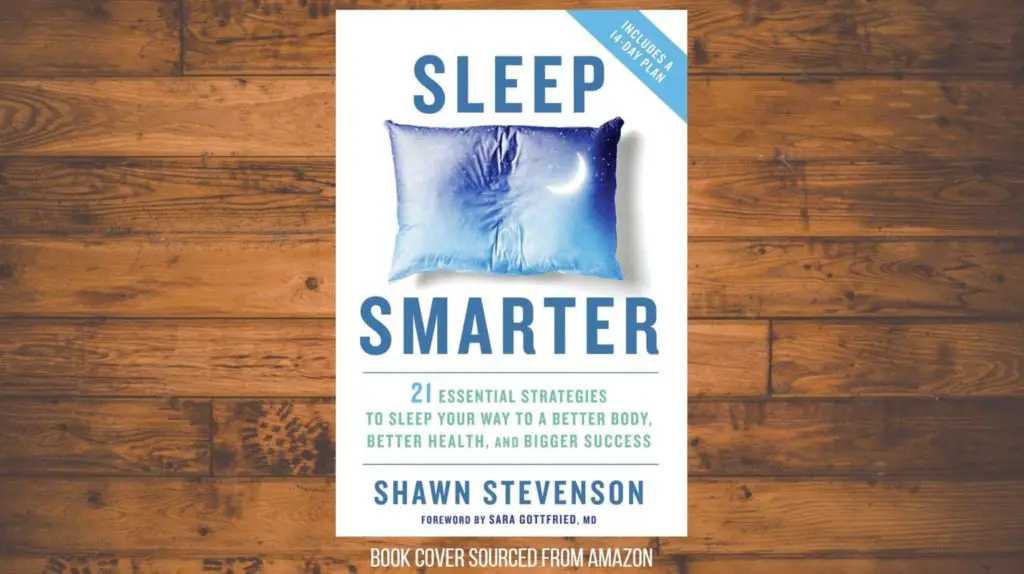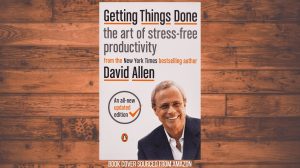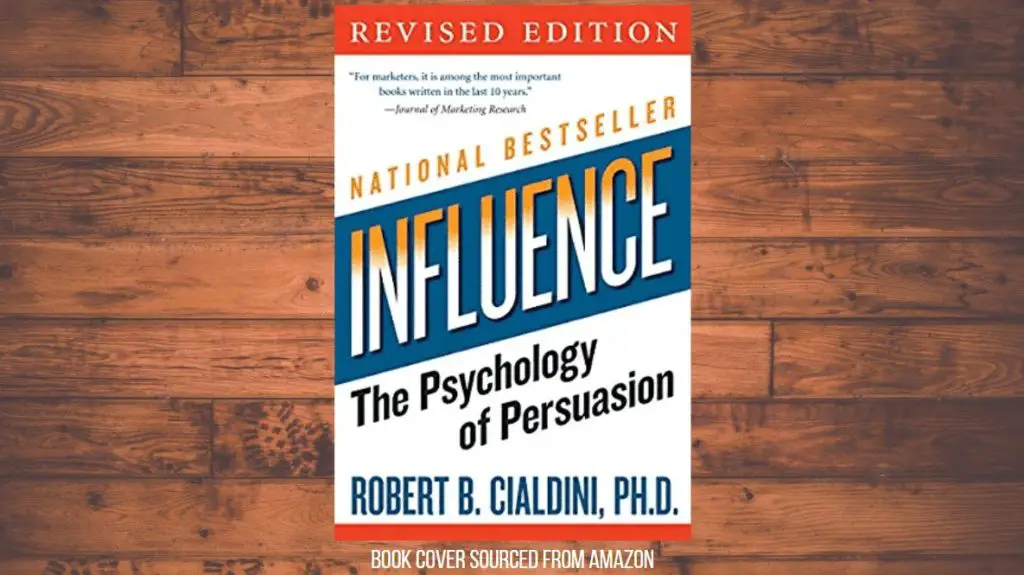This post may contain affiliate links, which means I’ll receive a commission if you purchase through my links, at no extra cost to you. Please read full disclosure for more information.
ABOUT
- Title: Sleep Smarter
- Sub-title: 21 Essential Strategies to Sleep Your Way to A Better Body, Better Health, and Bigger Success
- Author: Shawn Stevenson
- About the author: Shawn Stevenson is the creator of The Model Health Show, a highly ranked health podcast. He authored two bestselling books: Sleep Smarter and Eat Smarter. Shawn also founded Advanced Integrative Health Alliance, which is a company that provides wellness services for individuals and organizations. He has been featured by numerous top media outlets and speaks at conferences, organizations, universities, and more.
- Pages: 288
- Published: 2016
- Link to book
HIGH-LEVEL SUMMARY
Sleep Smarter is all about improving your sleep so you are sleeping efficiently and effectively. The book also aims to shed light on how important sleep is to our everyday life. In the foreword chapter, Sara Gottfried, MD mentions how sleep has a “PR problem.”
Sleep isn’t that “sexy” and many try to get by with as little sleep as possible. Often, people wear their lack of sleep like a badge. They see motivational phrases such as “I’ll sleep when I’m dead” and listen to entrepreneurs who glamorize how little they sleep to get things done.
Author Shawn Stevenson’s story started with an abnormal injury when he was 15. He was running at track practice when he broke his hip. This shouldn’t have happened to someone at that age and this was one of the darkest periods for him. Doctors were saying his condition was incurable.

He decided to take his health into his own hands. He learned all about the body and how to fuel his body to give it the raw materials to recover. He optimized his nutrition, exercise regimen, and sleep.
Sleep Smarter will share 21 ways to improve your sleep. When implemented, these tips can drastically improve your life.
This book is packed with information and everything is backed by research and experimentation. Shawn shares additional resources and citations throughout the book if you question any of the claims.
At the end of Sleep Smarter, Shawn lays out a 14-Day Sleep Makeover that you can follow. This guide will ease you into adopting all the changes into your daily routine.
RECOMMENDATION
I highly recommend Sleep Smarter to all individuals. Quality sleep is a necessity and everyone should do everything they can to ensure they are getting it.
The price for the book and time spent reading it is certainly worth the potential life-changing improvements you could realize from better sleep.
Shawn goes even further and offers advice for nutrition and exercise as well. To him, the three pillars to change your health are 1) right nutrition 2) right exercise and 3) right sleep.
I firmly believe that excelling in your career first requires a solid foundation in those three areas. Getting those right will enable you to put your best foot forward every day.
Check out these related posts next:
- Detailed Morning Routine of a Young Working Professional
- 10 Best Tips on How to Stay Positive When Things Get Tough
- Book Review: Spark by John J. Ratey, MD
- Book Review: Atomic Habits by James Clear
- How to Stay Focused at Work: 17 Ways
TOP 25 TAKEAWAYS
In no particular order
1. You’ll likely experience the following benefits with improved sleep: better skin, a more youthful appearance, emotional regeneration and better relationships, decreased risk of stroke and cardiovascular disease, fewer accidents, lower levels of inflammation, enhanced function of the immune system and lower risk of cancer and infection, hormonal balance, faster rate of weight loss, decreased pain, stronger bones, lower risk of Alzheimer’s disease and cognitive decline; better memory, and longevity.
2. Learning to sleep smarter is going to be one of the most valuable things you’ll ever do in the pursuit of living a great life on your terms.
3. Exercise radically increases the assimilation of nutrients and aids in the elimination of metabolic wastes, moving your lymphatic system, and pushing toxic waste out of your body.
4. Sleep is a force multiplier. It will magnify the results you get from your food and movement.
5. There isn’t one facet of your mental, emotional, or physical performance that’s not affected by the quality of your sleep.
6. Most people don’t realize that their continuous sleep problems are also a catalyst for the diseases and appearance issues they’re experiencing.
7. The brain has its own unique waste disposal system, similar to that of the lymphatic system. It’s called the glymphatic system. During sleep, the glymphatic system becomes 10 times more active than during wakefulness.
8. Get more sunlight during the day. Sunlight exposure triggers your body to produce optimal levels of daytime hormones and neurotransmitters that regulate your biological clock. The body clock is most responsive to sunlight in the morning: between 6:00 a.m. and 8:30 a.m.
9. Avoid screens before bedtime. This is likely the number one thing you can do to improve your sleep quality immediately. The artificial blue light emitted by electronic screens triggers your body to produce more daytime hormones. Turn off all screens 90 minutes before bed. Block blue light through apps on your devices or by using blue light blocking glasses.
10. Have a caffeine curfew. Caffeine provokes your adrenal glands to produce two anti-sleep hormones: adrenaline and cortisol. With caffeine having a half-life of 5 to 8 hours, set your caffeine curfew to 2:00 pm.
11. Do what you can to keep your body cool. The temperature of our bodies has a huge impact on our ability to sleep. The optimal room temperature for sleep is at around 60° to 68°F. Also, try out a cooling mattress pad.
12. Get to bed at the right time. Human beings get the most beneficial hormonal secretions and recovery by sleeping during the hours of 10:00 p.m. to 2:00 a.m. To get the highest-quality sleep possible, aim for getting to bed within a few hours of it getting dark outside.
13. Sleep cycles typically last for 90 minutes each and repeat four to six times per night. Start setting your alarm so that it goes off in accordance with these sleep cycles. For example, if you go to sleep at 10:00 p.m., set your alarm for 5:30 a.m. (for a total of 7½ hours of sleep).
14. Fix your gut. Avoid foods that upset your gut microbiome. Eat more good-sleep nutrients (primarily via natural food): selenium, vitamin c, tryptophan, potassium, calcium, vitamin D3, omega-3s, melatonin, vitamin b6, and magnesium.
15. Create a “sleep sanctuary.” To do this, you can keep the air fresh and flowing, have house plants in your home and room, and keep work out of your bedroom. Have a dedicated spot for work, such as your office only.
16. Get your room completely black for sleep. Use blackout curtains to keep outside light out and also turn off any disruptive light sources in your bedroom like light from nightlights, alarm clocks, TVs, etc.
17. Train hard, but smart. Working out at night can make it harder to fall asleep. Morning exercise is most ideal for improving your sleep. It can help to encourage a normal release of cortisol in the morning and put your cortisol cycle right on track.
18. Lose weight and keep it off. Carrying extra weight will release more stress hormones and can lead to other problems such as snoring and sleep apnea. To shift your body into more of a fat-burning state, put more of your focus on consuming protein and fat, rather than carbohydrates.
19. Drinking alcohol CAN indeed help you fall asleep faster, but your REM sleep is significantly disrupted by alcohol in your system. Wrap up the drinks at least 3 hours before going to bed. Drink more water to help flush out the metabolic waste products left behind by alcohol.
20. Sleeping position matters. One of the most important facets of your sleeping position is maintaining the integrity of your spine. Sleeping on your side seems to be best. Side-sleeping can be a quick fix for snoring and can help to improve breathing.
21. Calm the inner chatter in your head. Meditation has been shown to positively impact sleep. Practice deep breathing too, using your belly and diaphragm. Avoid solely breathing with your chest. This leads to shallow and short breaths.
22. Be early to rise. This will benefit your sleep because waking early and sleeping early will sync your circadian rhythm with the earth’s. Additionally, you can take advantage of the productivity you can have during your mornings.
23. Get massages. Massages help decrease pain, produce serotonin, produce oxytocin, and reduce cortisol production. On your own, you can try “progressive muscle relaxation” and use self-massage tools like foam rollers, lacrosse balls, and trigger point massage tools.
24. Dress for the occasion. Wear comfortable clothes, if you wear any at all. Keep yourself cool. Don’t wear anything tight or restrictive. In addition to the discomfort, restrictive clothing can cut off the flow of your lymphatic system, which moves toxic substances out of the body.
25. Practice grounding. Grounding is the process of having physical contact with the earth. Standing and walking barefoot on the Earth’s surface allows you to reap the benefits of the Earth’s electromagnetic surface. There are mats you can buy for the same electromagnetic effect. Target a minimum of 10 minutes of grounding each day.
WHAT I LIKED

Packed with prescriptive tips
You won’t just read about what sleeping smarter entails. You’ll be given actionable tips you can implement to improve your sleep. A majority of the tips don’t require you to purchase anything. They just involve a change in your habits, behaviors, and mindset.
With prescriptive advice, you can begin implementing changes immediately and benefitting from improved sleep potentially on day one.
When it comes to health, I like when experts tell me what I need to do. It gives me rules to abide by and eliminates ambiguity that could cause me to take no action at all.
Goes further than talking solely about sleep
I purchased Sleep Smarter to learn how to improve my sleep, but was pleasantly surprised that author dove into nutrition and exercise as well. I suppose they all interact with each other in the end, but I took away some solid information on diet, nutrition, and exercise.
One that comes to mind is the timing of certain foods and the timing of exercise. Some foods shouldn’t be eaten upon waking and before going to bed, or they can negatively spike insulin.
As for exercise, exercising too late in the day could lead to sleep troubles. Exercising in the morning is more ideal.
Easily digestible book
This book is 288 pages but felt much shorter than that due to it’s structure. The chapters are relatively short and make the whole book more digestible.
Shawn gets straight to the point with facts and actions the reader can take. You’ll be able to zoom through this book in no time.
BENEFITS TO YOUR LIFE AND CAREER

Quality sleep will drastically improve your health
No one can skate by unscathed with poor sleep over extended periods of time. Improving your sleep quality will drastically improve your health. No system is unaffected by poor sleep. In takeaway #1, we listed many benefits you can realize.
You can’t enjoy life and excel in your career without quality sleep.
Improved health and energy will impact your life and career
Your improved health will give you energy and vitality that you can attack life and your career with. For your life, you’ll have the drive and ability to do more and experience more.
For your career, you’ll have the energy to perform at your highest level. Sleep will allow you to learn faster and retain more in memory.
It was stated in the book that 60% of individuals in the US have trouble sleeping. As you compete at work, your sleep can act as a competitive advantage to propel you to the top.
Implementing tips will act as preventative care
The improvement of your health from its current state is an amazing benefit. Arguably, the most impactful benefit will be what doesn’t happen.
Poor sleep has been shown to be a catalyst for many diseases and ailments. Use sleep as preventative care to avoid things such as premature aging, injury, Alzheimer’s, and much more
15 ACTIONS YOU SHOULD TAKE
1. Don’t forego sleep with hopes of getting more done productively. Yes, you will be able to do more work, but quality and effectiveness will be sacrificed.
2. Check off multiple sleep-benefitting activities in one. Have a morning workout outside and in the sun. End with some stretching, barefoot on the earth. You will get the sleep benefits from exercise, sun exposure, and grounding.
3. Don’t wear sunglasses outside unless you absolutely need it. With sunglasses blocking sunlight from getting into your eyes, it will inhibit exposure you need for hormonal secretions and healthy sleep.
4. Turn off all screens 60 to 90 minutes for bed. You’ll avoid the negative blue light from the devices and you’ll be able to wind down before bed. If you can’t do that, at least use blue light blocking glasses.
5. To use caffeine in a “smart” way, set a caffeine curfew for your last sip at 2:00 p.m. Also use caffeine first thing in the morning to incite a beneficial cortisol boost.
6. Keep your room cool around 60° to 68°F. Personally, temperature regulation is the biggest factor to my ability to fall asleep quickly.
7. Try to be asleep for the time period between 10:00 pm and 2:00 am to take advantage of the most beneficial hormone secretions and recovery.
8. Strive to eat organic, locally grown, unprocessed foods for the bulk of your diet. Eat micronutrient-dense foods.
9. For your room, black it out, get some houseplants, and sleep with the window open.
10. Have sex with your partner before bed. The sex and orgasm will release a bunch of hormones that can act as sedatives.
11. Keep devices and electronics out of your room to limit EMF exposure.
12. If you need to eat something close to bedtime, have a high-fat, low-carb snack. This will keep your blood sugar stable.
13. Start practicing mindfulness and meditation. There are many benefits to doing this. Better sleep is one of them. (See: Book Review: Think Like a Monk by Jay Shetty and Book Review: The Wim Hof Method by Wim Hof).
14. When making the change to wake up earlier, make it gradual. Take 15-minute increments off your wake-up time until you reach your desired time.
15. Go to bed and wake up within plus or minus 30 minutes of the same time each day. A consistent sleep schedule is beneficial to your sleep quality.
RESOURCES
Sleep Smarter can be found on Amazon at this link here if you are interested in reading.



